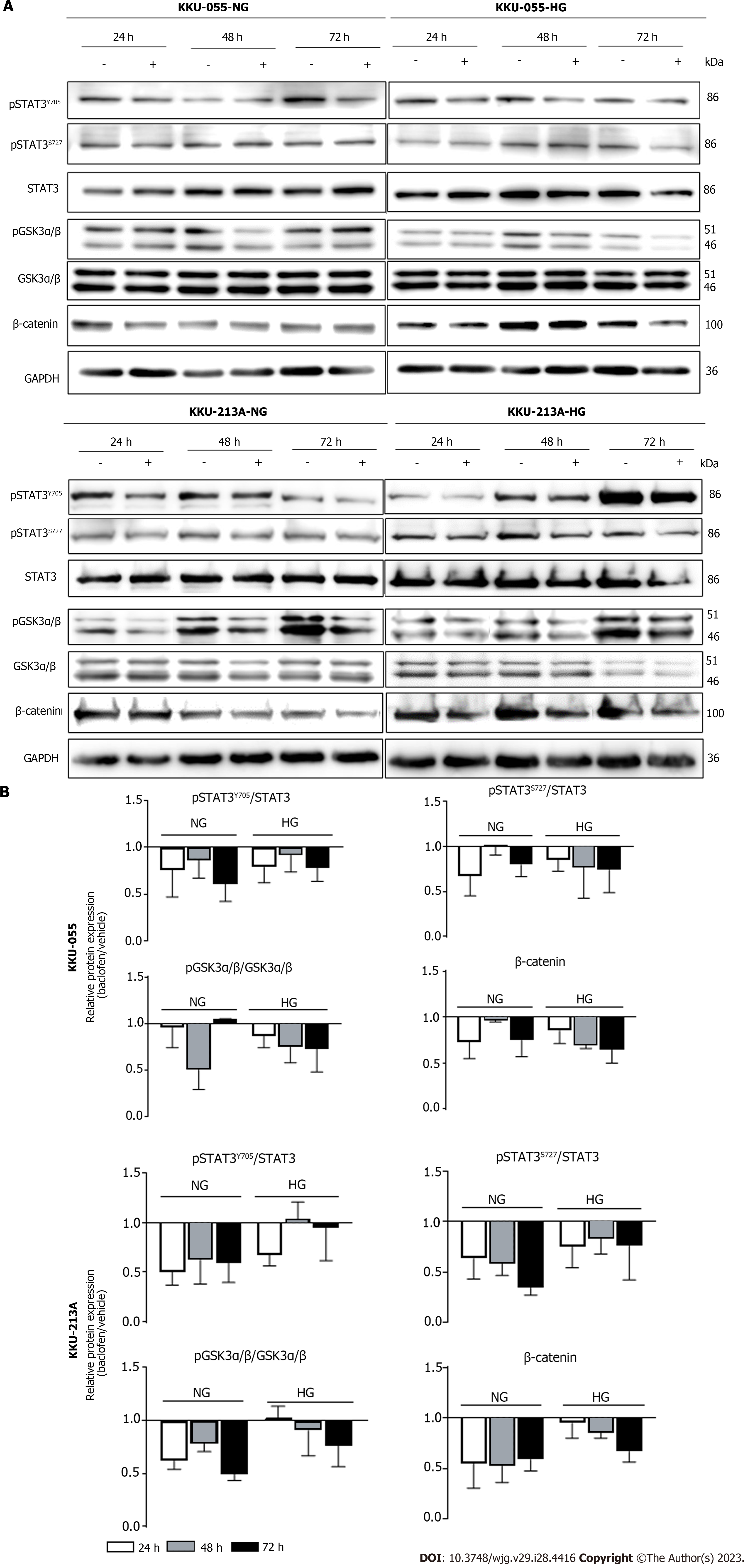Copyright
©The Author(s) 2023.
World J Gastroenterol. Jul 28, 2023; 29(28): 4416-4432
Published online Jul 28, 2023. doi: 10.3748/wjg.v29.i28.4416
Published online Jul 28, 2023. doi: 10.3748/wjg.v29.i28.4416
Figure 4 Baclofen suppresses the glycogen synthase kinase 3/β-catenin and signal transducer and activators of transcription 3 pathways.
A and B: Phosphorylation of glycogen synthase kinase 3 (GSK3) and signal transducer and activators of transcription 3 is decreased after baclofen treatment in both cholangiocarcinoma cell lines, both cultured in normal glucose and high glucose conditions. Total β-catenin protein is also decreased consistently with the decreased phosphorylated GSK3α/β. Western blots show the representative of three biological replications with the same trends of results. Band intensities are the average of three biological replications which are normalized using the intensities of glyceraldehyde-3-phosphate dehydrogenase for each experiment. The levels of phosphorylated forms are normalized with the total forms of their corresponding proteins. NG: Normal glucose; HG: High glucose; GAPDH: Glyceraldehyde-3-phosphate dehydrogenase; GSK3: Glycogen synthase kinase 3; STAT3: Signal transducer and activator of transcription 3.
- Citation: Saengboonmee C, Sorin S, Sangkhamanon S, Chomphoo S, Indramanee S, Seubwai W, Thithuan K, Chiu CF, Okada S, Gingras MC, Wongkham S. γ-aminobutyric acid B2 receptor: A potential therapeutic target for cholangiocarcinoma in patients with diabetes mellitus. World J Gastroenterol 2023; 29(28): 4416-4432
- URL: https://www.wjgnet.com/1007-9327/full/v29/i28/4416.htm
- DOI: https://dx.doi.org/10.3748/wjg.v29.i28.4416









